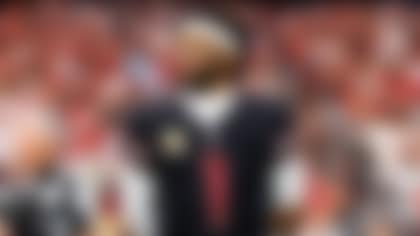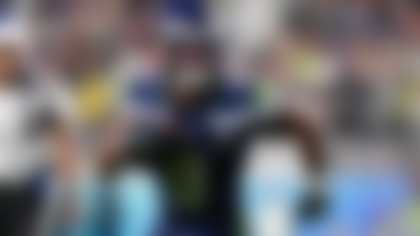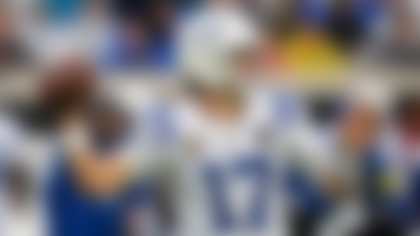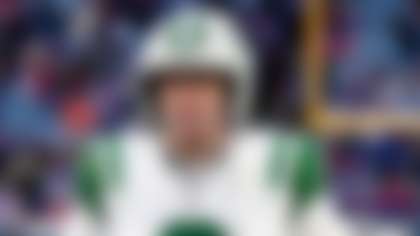The Chicago Bears' offense isn't hibernating. No, it's dead and rotting in the cave.
Sunday afternoon's boot-stomping from the New Orleans Saints epitomized the struggles Mitchell Trubisky and the offense have had through six games this season. The Bears are the only team in the NFL not to gain 300-plus yards one single time in 2019.
In a league where the Miami Dolphins are essentially trying to lose, the Washington Redskins have an offense made of decrepit sandbox toys, and the Cincinnati Bengals look like children lost at the mall, that the Bears are the only team that can't surpass the 300-yard barrier seems more than disappointing. It's an affront to the eyes.
On Sunday, Matt Nagy's team shouldn't have even come close to the 252 total yards they did compile thanks to three fourth-quarter garbage-time drives that made that number, and Trubisky's overall stats, look better than they were -- which is akin to saying that flaming poo can look scrumptious. Through three quarters, the Bears compiled 85 total yards on 10 drives.
What professional team averages 8.5 yards per drive for three quarters? What professional team gets four firsts downs in three quarters? What professional team has six three-and-outs, loses two fumbles, and has just one of its first 10 drives go for more than six plays?
"Right now we have no identity," Trubisky said after the 36-25 loss, via the team's official website. "We're just searching. We don't have any rhythm. We're not the offense we were last year, and every year is different, every game is different. We've just got to find ways, look within ourselves, and we've got to have guys step up."
Trubisky is a big part of the problem. Sunday, he gave the offense no shot to produce early, missing several wide-open targets by a Magnificent Mile. Most of his 251 yards and both his TDs came well after the game was decided, with the Bears scoring twice after getting down 36-10 to make the scoreboard and box score look more respectable.
Anyone who watched the game unfold knows the box score lied.
"When you have one side that's playing really well and another side that's trying to get things figured out, for us as a team, the frustrations, the emotions right now after the game when you have that kind of stuff go on, it can challenge you," Nagy said. "It really can. It can challenge you individually, and that's something that's completely normal. But that's why we build this team the way we build it is for when situations like this come up. We've got to figure out how we turn this thing around."
Part of the struggles Sunday stemmed from Nagy's play-calling. With Trubisky coming off a left shoulder injury, the QB threw the ball 54 times and was sacked twice. The Bears ran the ball seven times for the game, a franchise-low, per NFL Research.
With the game close early, Nagy kept dialing up Trubisky's number -- or the QB kept it on RPOs -- as the Bears ran just five times in the first half despite it being a one-score game.
"I really thought our run game would be better," Nagy said after the tilt. "The attempts-wise, I don't know our numbers as far as total plays in the first half, but you know, the run game early on, just not a lot there, so then you go to throwing the ball a little bit, got a little bit going, and then the start of the third quarter we had a fumble, and you just say -- it's just one of those days. But for us, it's been one of those weeks. We need to pull together, and I'll be able to here in a little bit go back and watch the tape. But I don't know, what was -- rushing yards was so low, I don't know. But you have 17 yards. You've got to be able to run the ball."
Frankly, the Bears need to be able to do anything positive at all on offense.
Sitting at 3-3, well behind the Green Bay Packers in the NFC North, Chicago is once again staring at wasting a great defense.












